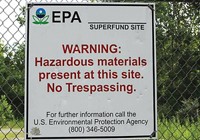Advertisement
Grab your lab coat. Let's get started
Welcome!
Welcome!
Create an account below to get 6 C&EN articles per month, receive newsletters and more - all free.
It seems this is your first time logging in online. Please enter the following information to continue.
As an ACS member you automatically get access to this site. All we need is few more details to create your reading experience.
Not you? Sign in with a different account.
Not you? Sign in with a different account.
ERROR 1
ERROR 1
ERROR 2
ERROR 2
ERROR 2
ERROR 2
ERROR 2
Password and Confirm password must match.
If you have an ACS member number, please enter it here so we can link this account to your membership. (optional)
ERROR 2
ACS values your privacy. By submitting your information, you are gaining access to C&EN and subscribing to our weekly newsletter. We use the information you provide to make your reading experience better, and we will never sell your data to third party members.
Policy
Business Gets a Tax Break
Chemical producers, drugmakers, refiners win with new legislation
by Cheryl Hogue, Jeff Johnson
October 18, 2004
| A version of this story appeared in
Volume 82, Issue 42
The corporate tax overhaul just approved by Congress and expected to be signed by President George W. Bush will benefit chemical and pharmaceutical companies and some refiners, as well as manufacturers of all sorts.
The initial motivation for the bill was to overturn a corporate tax break that the World Trade Organization (WTO) ruled is an illegal subsidy for U.S. exporters. Under this tax break, U.S. companies are allowed to exclude a portion of their foreign sales income from federal taxes. The exclusion is worth an estimated $500 million a year to basic chemical manufacturers.
Since March, the European Union has collected millions of dollars each month in WTO-approved tariffs on many U.S. exports in retaliation for the tax break.
The new law eliminates the disputed tax break and replaces it with an estimated $137 billion in new cuts over 10 years, with about $77 billion directed to manufacturers.
A chemical industry source says the new tax law will be complicated for the IRS to administer and for companies to comply with. But overall, he says, "it's a win" for manufacturers, including chemical makers.
One part of the new law allows multinational companies to bring profits they made at operations abroad into the U.S. at a 5.25% tax rate, instead of standard corporate rates of up to 35%. The Pharmaceutical Research & Manufacturers of America lobbied for this provision. PhRMA spokesman Jeff Trewhitt says this section of the law "could contribute to the creation of important new jobs in the U.S."
In contrast, most multinational chemical producers typically pour the profits they make offshore back into their foreign operations rather than bring the funds to the U.S., the chemical industry source says. However, some chemical manufacturers--and many customers of the industry--may avail themselves of the new tax provision, so "it may be good for business," the source tells C&EN.
Other provisions of the legislation are drawn from long-stalled energy legislation. Some $2.3 billion in tax benefits over 10 years would go to electricity generators that use renewable energy sources. But along with electricity made from biomass, municipal waste, animal waste, geothermal, solar, and other renewable sources, the covered sources were expanded to include "refined coal," defined as a coal-based fuel with 20% fewer air emissions, not including CO2, than conventional coal.
Several other provisions are directed to fuels. One gives $119 million in tax cuts to small refineries to help cover their cost of compliance with regulations for low-sulfur diesel fuel. The bill offers $110 million in tax breaks for oil and gas stripper well owners and continues the tax subsidy for ethanol in fuels. It includes $150 million in tax incentives for Alaskan natural gas pipeline construction and $295 million in tax breaks for Alaskan natural gas processors.
Also, the legislation is designed to encourage tax-exempt investors, such as university endowments, foundations, and pension funds, to invest in the cleanup and redevelopment of contaminated industrial land. It waives taxes on capital gains from the sale of these properties after they are cleaned up.
This so-called brownfields provision is "potentially very significant for some companies," says the chemical industry source.





Join the conversation
Contact the reporter
Submit a Letter to the Editor for publication
Engage with us on Twitter